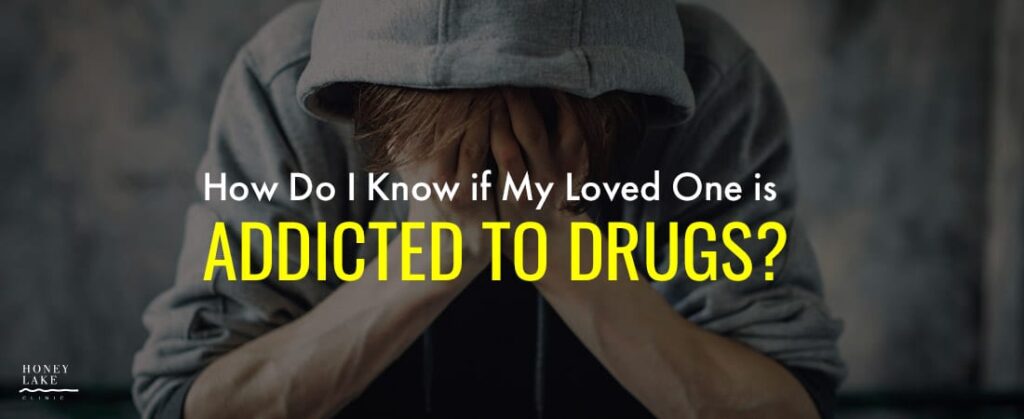How Do I Know if My Loved One is Addicted to Drugs?
Substance abuse cannot remain hidden for long. Changes in behavior, neglecting responsibilities, exhausting financial resources, and engaging in criminal conduct are some of the most obvious signals of a drug problem. Family members and loved ones are usually in the best position to recognize a drug problem as they are familiar with the person’s behavior and habits.
Signs of Addiction
Dr. Benzio, from Honey Lake Clinic, believes recognizing the signs of addiction is the first step to getting help for someone you love. Depending on the substance being abused, there are a number of telltale behavioral, physical, and psychological signs.
Behavioral Signs
Behavioral signs involve a person’s relationships with the world around them which can be altered by their addiction. Look for—
- Obsessive Thoughts and Actions – Acquiring their substance of choice can become their main priority, as other obligations—work, studies, family, etc.—are sidelined.
- Loss of Control – Even if they want to stop, they cannot.
- Denial and/or Hiding – When confronted, they’ll deny or downplay their substance abuse. To avoid these confrontations, they may try to hide their behavior.
Physical and Psychological Signs
Physical signs of addiction manifest as side effects of use, during an overdose, or as a result of withdrawal. Signs vary based on substance and duration of abuse. Look for signs like—
- Enlarged or small pupils
- Sudden weight loss or gain
- Bloodshot eyes
- Insomnia
- Unusual body odors
- Poor physical coordination
- Looking unkempt
- Slurred speech
- Drowsiness or trouble walking
- Agitation
- Hallucinations
- Delusions
- Anxiousness
- Inattentiveness
- Lack of motivation
- Irritability or angry outbursts
- Changes in personality or attitude
- Emotional and mental withdrawing from people
- Sudden mood swings
- Unexplained paranoia
Other Clues
Family members and loved ones are often key players in encouraging someone to get the help they need. In addition to the behavioral, physical and psychological signs, you might notice drug paraphernalia or overhear street terms used to reference drugs or alcohol. Being alert is your first and best tool in the endeavor to discern if a loved one has a problem.
Legal Trouble
Often an encounter with law enforcement—a DUI, public intoxication or drug arrest—can be a first indication someone you love a problem. Encourage your loved one to use this as the opportunity it is: a chance to face the truth and seek help.
We Can Help!
It’s important to recognize, abuse and addiction don’t happen in a vacuum. The path to recovery and wholeness involves getting to the root the problem. To get at underlying hurt and bring lasting healing takes a holistic—spirit, mind and body—approach to addiction diagnosis, management and treatment.
At Honey Lake Clinic, our experienced doctors and staff strongly believe that faith-based treatment, encompassing spiritual, physical and mental health, will help clients and their families bring spiritual power and clearer psychological understanding to their healing and recovery.
